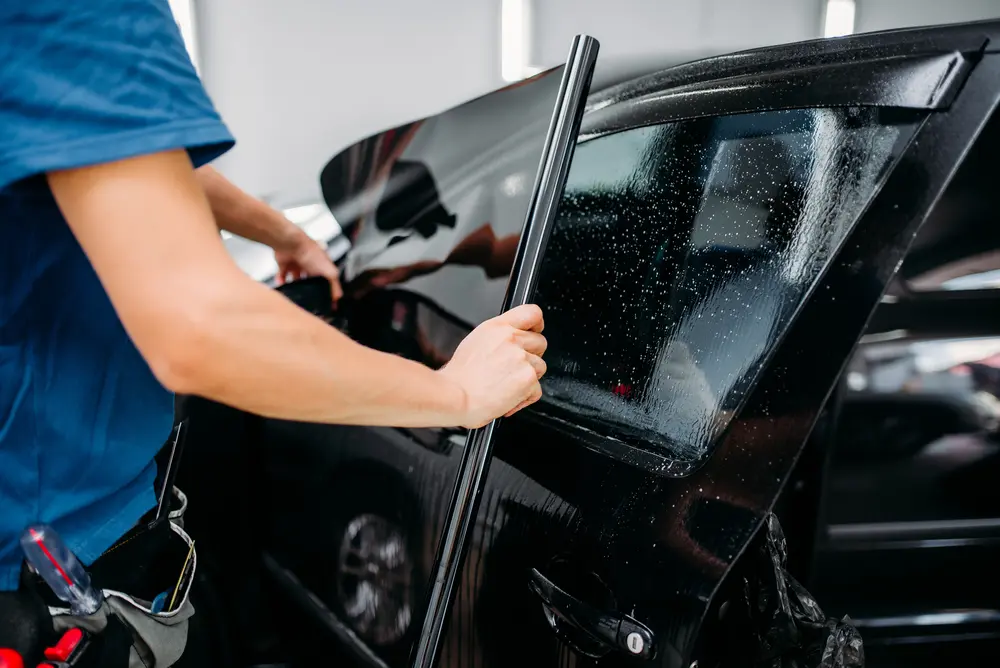WINDOW TINTING
Window tinting on a car involves applying a thin film to the interior surface of the vehicle's windows. Here are the advantages of window tinting:
1. Heat Reduction: Window tinting helps block solar heat from entering the vehicle, keeping the interior cooler and more comfortable, especially during hot weather. This reduces the need for excessive air conditioning, leading to improved fuel efficiency and lower energy consumption.
2. UV Protection: Window tinting blocks a significant amount of harmful UV rays from penetrating through the windows. This helps protect the occupants of the vehicle from sunburn, premature aging, and an increased risk of skin cancer. It also helps prevent fading and damage to the interior upholstery, dashboard, and other surfaces.
3. Glare Reduction: Tinted windows reduce glare from sunlight, headlights, and other vehicles' reflective surfaces, improving visibility and reducing eye strain for the driver. This enhances safety and comfort, especially during daytime driving and in bright or low-angle sunlight conditions.
4. Privacy and Security: Window tinting provides added privacy for the occupants of the vehicle by reducing visibility from the outside. This can help deter theft and vandalism by concealing valuable items and personal belongings stored inside the car.
5. Enhanced Aesthetics: Tinted windows give the vehicle a sleek, stylish appearance, enhancing its overall aesthetics and adding a touch of sophistication. Window tinting comes in various shades and levels of darkness, allowing car owners to customize the look of their vehicle to their preferences.
6. Interior Preservation: By blocking UV rays and reducing heat, window tinting helps preserve the interior of the vehicle, including upholstery, dashboard, and trim, from fading, cracking, and deterioration. This maintains the resale value of the car and prolongs its lifespan.
7. Shatter Resistance: In the event of an accident or collision, window tinting helps hold shattered glass together, reducing the risk of injury from flying glass shards. This enhances the safety of the vehicle's occupants and provides added peace of mind.
8. Energy Efficiency: By reducing the need for air conditioning and improving fuel efficiency, window tinting contributes to overall energy savings and environmental sustainability. It helps reduce greenhouse gas emissions and reliance on fossil fuels for transportation.
Overall, window tinting offers several advantages, including heat reduction, UV protection, glare reduction, privacy and security, enhanced aesthetics, interior preservation, shatter resistance, and energy efficiency. These benefits make it a popular choice for car owners looking to improve comfort, safety, and style in their vehicles.
